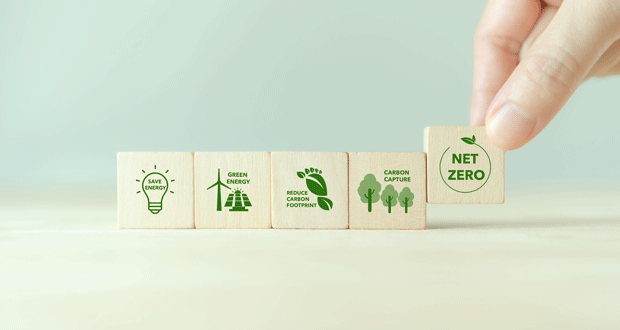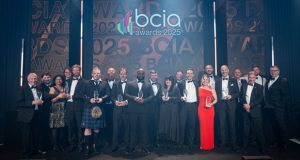New research from Mitie reveals that over four in five (84 per cent) of sustainability leaders feel confident businesses will be able to align with the UK’s net zero goals, however, despite this confidence, Mitie’s ‘Net Zero Navigator’ report, which is now in its third year reveals the key challenges and concerns decision makers face to stay on course for net zero.
The survey of over 100 senior sustainability leaders revealed that decision makers are concerned about how changes in the energy landscape will impact their businesses. The cost of energy was revealed to be a top concern with over half (57 per cent) saying they worry about the cost of energy rising over the next five years, and just under two thirds (64 per cent) concerned that prices remain unstable. Similarly, three fifths (60 per cent) are worried supply chain disruptions will affect their organisation in the next five years.
When it comes to realising decarbonisation ambitions, over three quarters (78 per cent) said they face difficulty securing capital to fund transformation projects such as ground source heat pumps or onsite battery storage. The availability and reliability of renewable energy sources was also cited as a top concern, with over a quarter (27 per cent) saying that this is the biggest challenge in reducing their organisations’ reliance on fossil fuels.
Net Zero Navigator, Mitie’s annual decarbonisation predictions report, helps organisations respond to the fast-evolving decarbonisation landscape. It includes insight from energy and environment policy expert, Josh Buckland, on the policy landscape for the year ahead. This includes likely outcomes at COP30 where nations will be required to present credible plans to meet the 1.5˚C degrees Paris Agreement target, and the shift to renewable energy meaning nuclear power will see a resurgence as grid infrastructure struggles to keep pace.
Buckland highlights the need for organisations to transform ambition into real impact by demonstrating the broader value of decarbonisation, such as driving technological innovation. By taking a technology-led approach, organisations will be able to balance immediate energy requirements with long-term sustainability goals.
With almost all (99 per cent) of those surveyed saying they have already implemented ‘quick wins’ on their sustainability journeys and are now looking to tackle more difficult measures to help them accelerate towards net zero.
- Energy: Organisations that use smart data to understand their current and future energy use and work with suppliers to create a tailored energy plan will set themselves in good stead for the switch to cleaner, greener energy. Technology solutions, such as AI, can be applied to gain deeper insights into future energy strategy, factoring in typical generation from the grid as well as the weather and energy-generation patterns that might impact supply and demand.
- Legislation: Proceeding with confidence and investing in energy infrastructure such as on-site battery storage and EV charging, will help organisations stay ahead in the midst of legislative change.
- Estates and infrastructure: With extreme climate conditions expected to increase in frequency and severity, climate resilience for buildings should be a priority. Investing in climate resilient building upgrades as well as refining data and technology strategies to predict the resilience of supply chains will help protect organisations from climate change related extreme weather conditions.
- Strategy: Positioning the proven benefits of ‘quick win’ solutions as part of a holistic strategy will help build the case for larger and more transformative decarbonisation projects. A move away from short-term thinking will achieve a longer-term impact on sustainability and help drive more significant investment.
- Carbon reporting: Increasing ownership of carbon data beyond the boardroom and sustainability teams and making data more accessible and actionable will enable faster progress to net zero.





